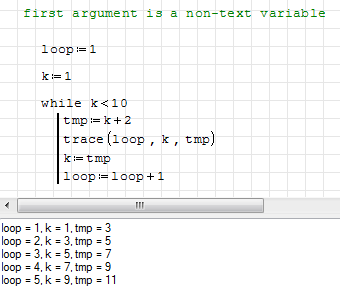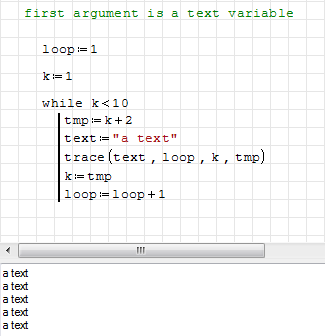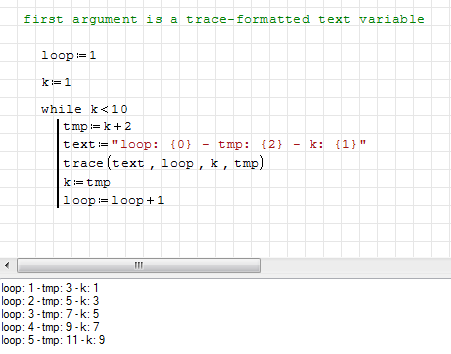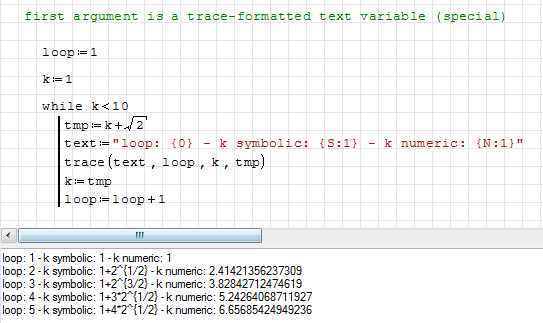trace(
var#1,
var#2,...,
var#n) trace evaluations through the
Output window.
Returns a string containing the value of the arguments with output order and surrounding text specified by first argument. Specifying of the first text argument is optional.
trace(...) it's a function introduced to help users with script's debug.
EditSyntax
if
var#1 is not a text, trace(...) returns comma separated values

if
var#1 is a text, trace(...) returns the string (no other values)

if
var#1 is a trace-formatted text, trace(...) returns a string according with
var#1 pattern.
to show variable values with custom text/order you must insert into curly brackets the trace()
variable position index;
variable position index is
0 for
var#2,
1 for
var#3,
2 for
var#4, etc...

NOTE: curly brackets can be added typing "shift" + "[" for "{" and "shift" + "]" for "}"trace(...) output can force evaluation, placing before the position index:
- S: for symbolic evaluation
- N: for numeric evaluation

EditUsage
trace() can be used:
- directly, like a common function requiring numerical (=) or symbolical (→) evaluation
- directly, inside for loops (at least one operation must be performed inside the loop)
- directly, inside line() (at least one operation must be performed inside the line())
EditHistory
- SMath 0.91 (stable): first relase
EditSee also
EditReferences